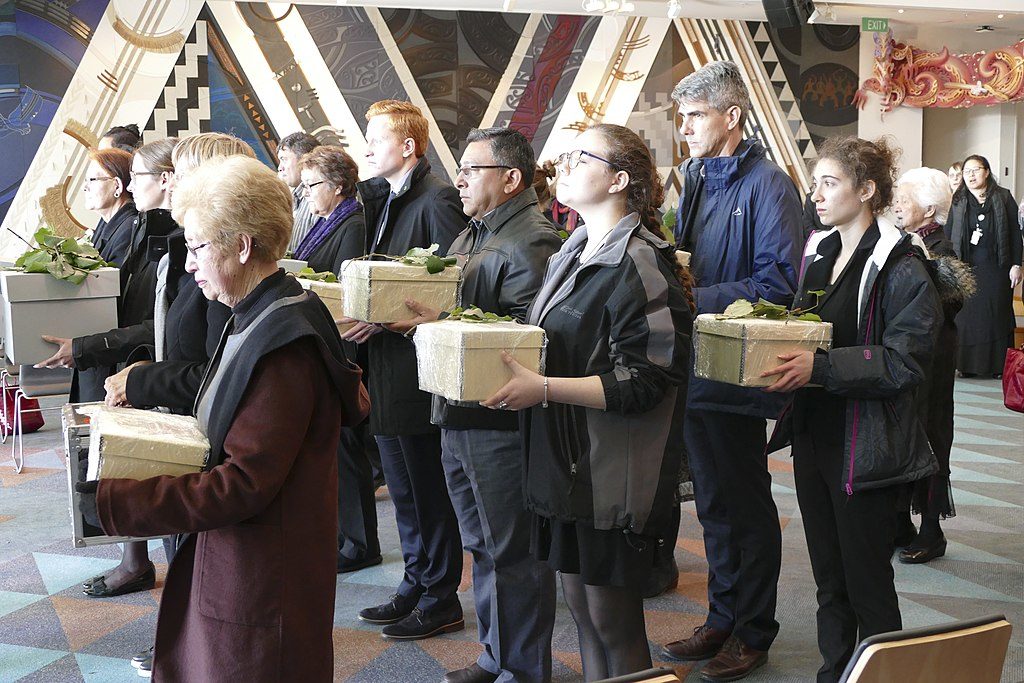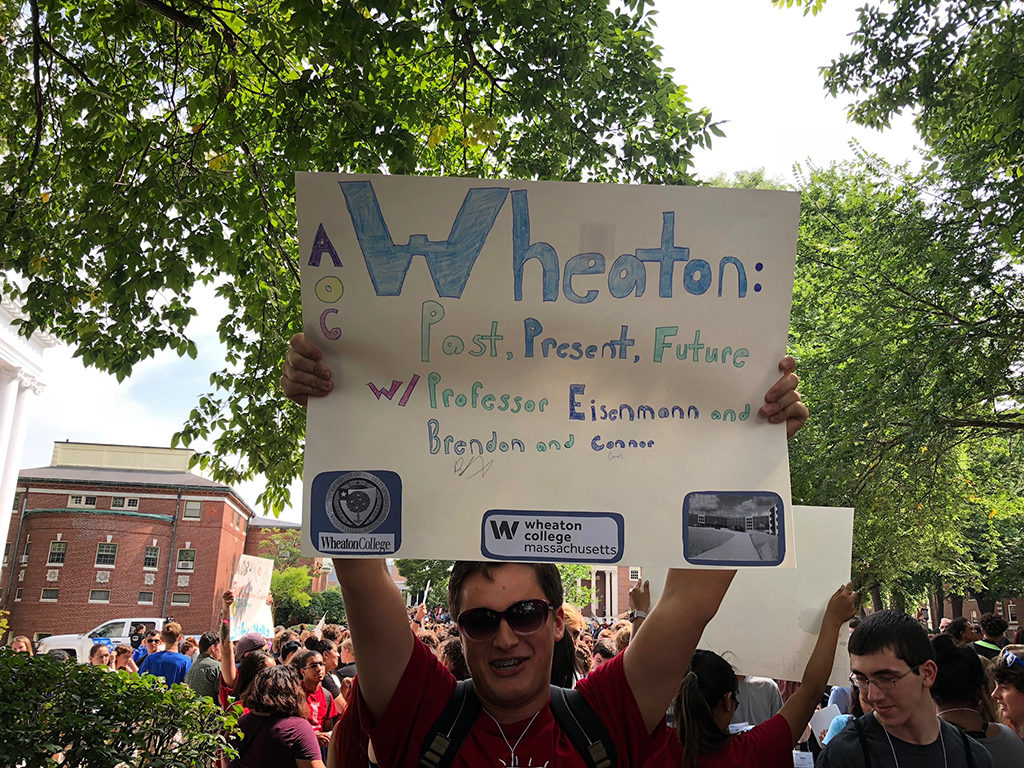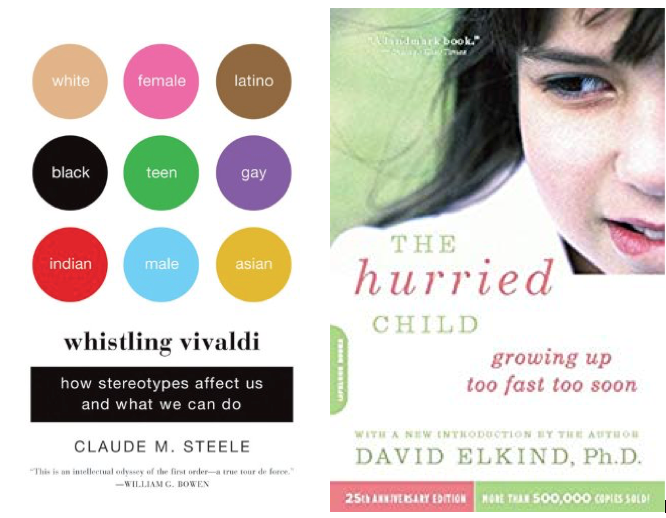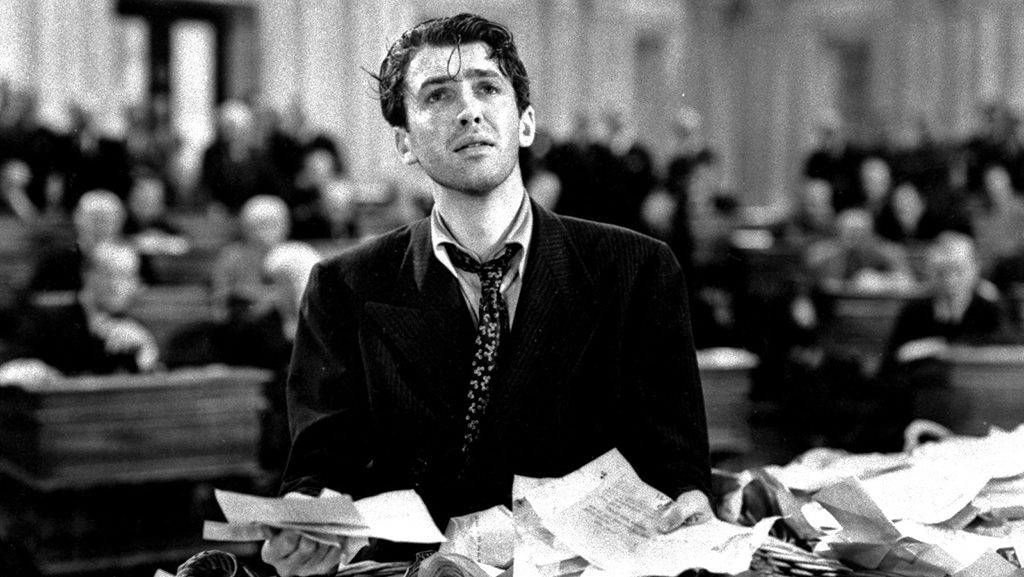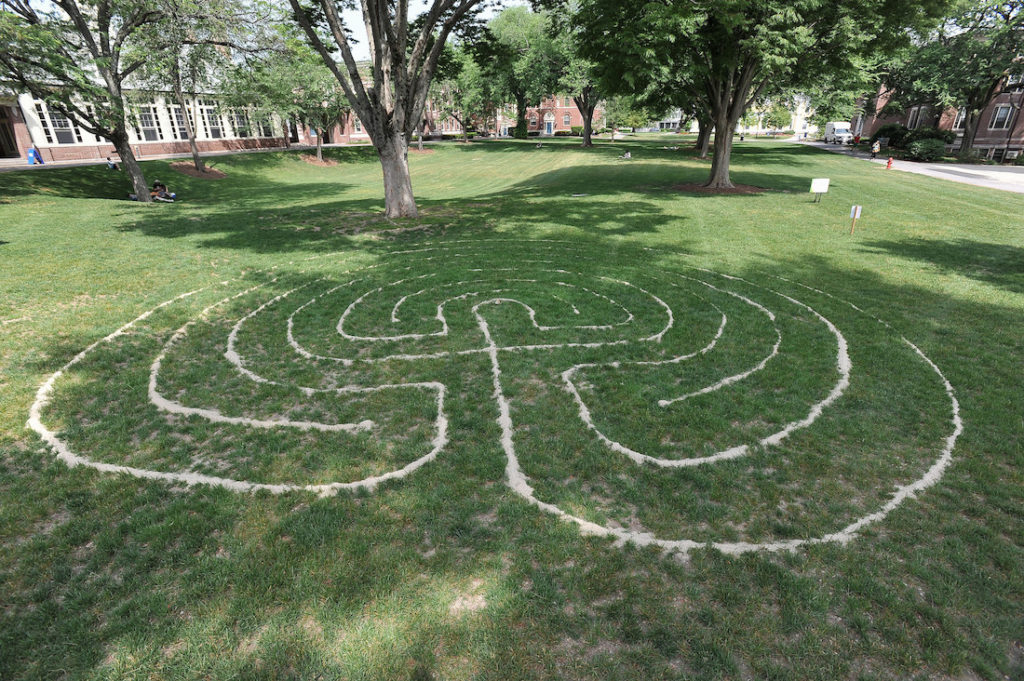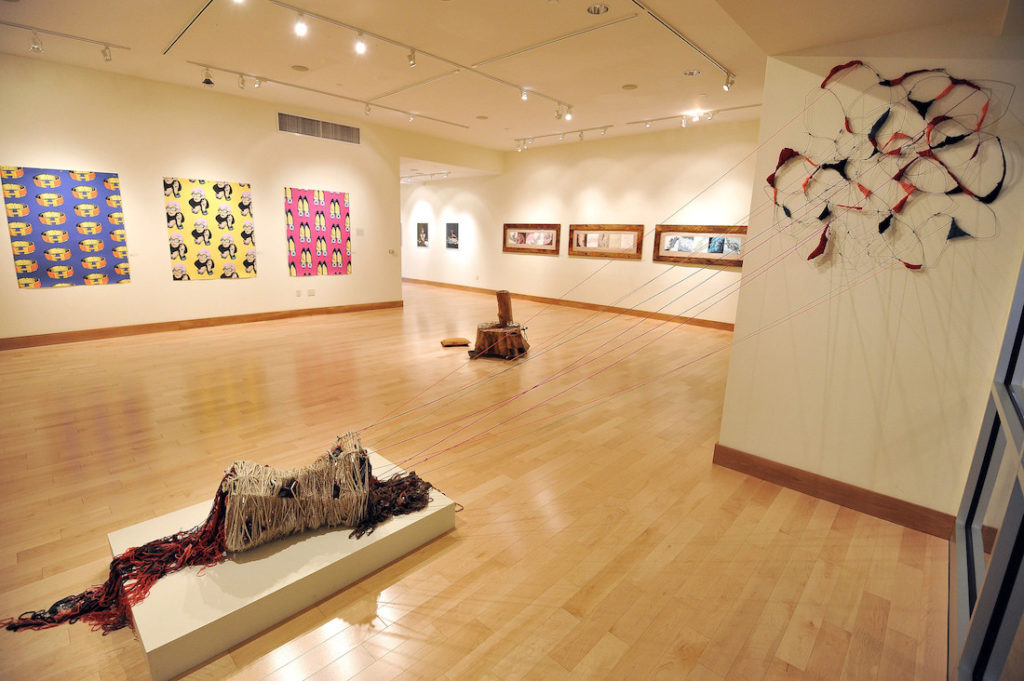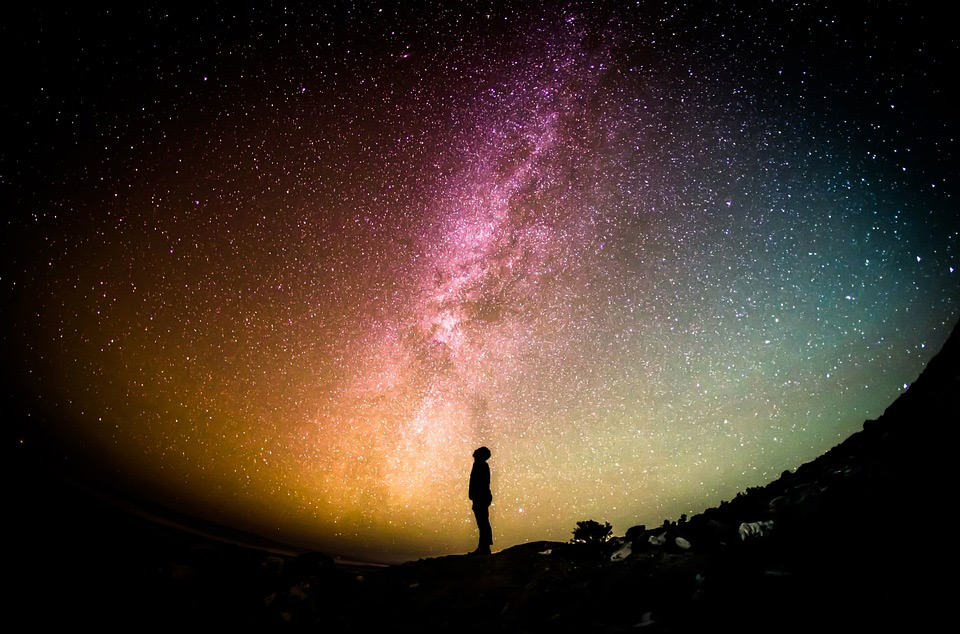Eight fascinating first-year classes
Think you know what a freshman college class looks like? Think again.
Wheaton’s First-Year Seminars cover everything from Harry Potter to Hollywood, fan communities to the shape of the universe—looking at an issue from multiple perspectives and through a variety of academic lenses.
Through small group discussions, self-exploration, interesting field trips (including dinner with President Hanno) and engaging class projects, these courses encourage new students to dive into life and learning at Wheaton.
Here’s a quick look at eight First Year Seminar (FYS) classes being offered for the fall 2018 semester…
1. “Gift or Loot: Who Controls Cultural Property?”
Course teaser: “What do a bust of Nefertiti, the Parthenon Marbles, and the tattooed head of a Maori chief have in common? They have all been the focus of contested claims over cultural property, specifically for repatriation.”
Taught by: Assistant Professor of Art History and Museum Studies and Curator of the Permanent Collection Leah Niederstadt
Reading list: Loot: The Battle over the Stolen Treasures of the Ancient World by Sharon Waxman
Field trips: WaterFire Providence, Robbins Museum in Middleborough, Mass.
Special project: Research the provenance of an object from Wheaton’s Permanent Collection
2. “Wheaton: Past, Present, and Future”
Course teaser: “How do we examine, and can we reconcile, the different Wheatons that have existed over the years? And how does Wheaton fit into a larger history of American colleges?”
Taught by: Professor of Education and History Linda Eisenmann
Reading list: A History of American Education by John R. Thelin, Doing Oral History by Donald A. Ritchie
Field trips: Gebbie Archives and Special Collections
Special project: Conduct and present oral history interviews with some of Wheaton’s longest-serving faculty members
3. “Am I Living Out My Parents’ Dreams?”
Course teaser: “How powerful are the interactions with one’s parents in shaping who we are as adolescents or adults? What role does school play in life and career choices? Do stereotypes about culture, religion, race or gender limit our goals?”
Taught by: Education Instructor and former Nursery School Director Marge Werner
Reading list: Whistling Vivaldi by Claude Steele, The Hurried Child by David Elkind
Field trips: Elisabeth W. Amen Nursery School, Wallace Library
Special project: Research different countries and their cultures and develop a presentation
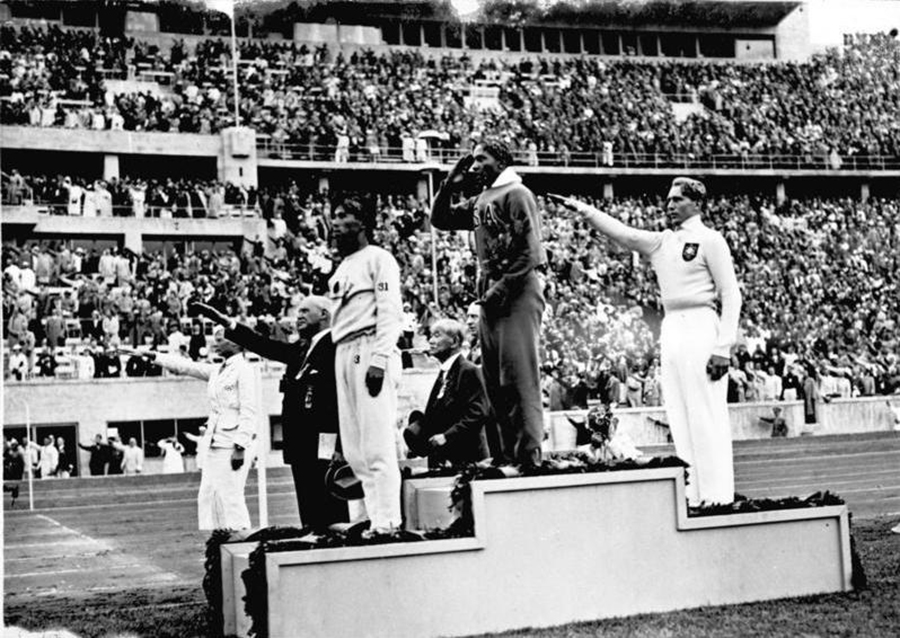
4. “Black in Berlin”
Course teaser: “In Berlin, you can walk down a street named after Jesse Owens, the black American athlete whose four gold medals at the 1936 Berlin Olympics famously upset Nazi theories of white superiority. This course will compare the troubled histories of the U.S. and Germany regarding race and identity by exploring their similarities, differences and complex relationships.”
Taught by: Visiting Assistant Professor of German Laura Bohn Case
Reading list: Half-Blood Blues by Esi Edugyan, Destined to Witness: Growing Up Black In Nazi Germany by Hans Massaquoi
Watch list: “Aguirre, the Wrath of God” (1972), “The Marriage of Maria Braun” (1978)
Field trips: Harvard Art Museums, New England Holocaust Memorial
5. “Red States, Blue States, and the Silver Screen”
Course teaser: “Politics has always been an important topic in Hollywood. From the silent era through the present, filmmakers, producers, writers, and actors have left imprints of their opinions about the U.S. government on film.”
Taught by: Assistant Professor of Political Science Bradford Bishop
Reading list: Projecting Politics: Political Messages in American Films by Elizabeth Haas, Terry Christensen and Peter J. Haas
Watch list: “Mr. Smith Goes to Washington” (1939), “Twelve Angry Men” (1957), “Star Wars” (1977), “Do the Right Thing” (1989), “Shattered Glass” (2003)
Field trips: Attend five campus events, including: a public lecture, performing arts event, art exhibit, athletic event, club/student group meeting
6. “Sacred Plants”
Course teaser: “Anthropological and religious studies provide insights into indigenous and shamanic use of plants, such as the Huichol Indian visionary and healing use of peyote. In South America the Amazonian shamans sing to the plants, including ayahuasca, believed to facilitate an encounter with Mother Ayahuasca herself, the spirit of all plants.”
Taught by: Professor of Religion Jeffrey Timm
Reading list: The Botany of Desire by Michael Pollan, Plants as Persons: A Philosophical Botany by Matthew Hall
Field trip: Providence Zen Center
Guest speaker: Claudia J. Ford will deliver the 30th annual Martin Lecture in Religion, “A Tale of Two Gardens: The Sacred Gifts of Indigenous Ethnobotany,” on November 14
Special project: Each student will try to keep a houseplant of their choice flourishing in their dorm room during the semester, and reflect on the experience.
7. “I Like It But I Don’t Know Why: How to Think About Art, Pleasure, Beauty and Truth”
Course teaser: “Why do we like what we like? What forms our taste? By deeply engaging with all manner of art and performance students will further develop their own aesthetic, articulate their thoughts with greater clarity and confidently defend what they love.”
Taught by: Visiting Instructor of Theater Jennifer Madden
Reading list: Better Living Through Criticism: How to Think About Art, Pleasure, Beauty and Truth by A.O. Scott, Gloria by Branden Jacobs-Jenkins
Field trips: Gamm Theatre in Warwick, R.I.; 10-Minute Play Festival, “Much Ado About Nothing,” Fiber/Paper/Love opening and Dance Company performance at Wheaton
Special projects: Campus scavenger hunt; presentation on a favorite artist, film, book or genre
Course teaser: “What is the shape of our universe? How would an ant know whether it lived on a sphere, a donut-surface, a plane or some other unknown surface? We will explore spaces through the creation of mathematical objects, drawing and writing.”
Taught by: Associate Professor of Mathematics Rachelle Decoste
Reading list: The Shape of Space by Jeffrey R. Weeks, Flatland: A Romance of Many Dimensions by Edwin A. Abbott
Field trips: Wheaton Observatory and Lab 213 makerspace
Special project: Create a universe based on the mathematical properties discussed in the course, whether a 3-D model, music composition or otherwise.

